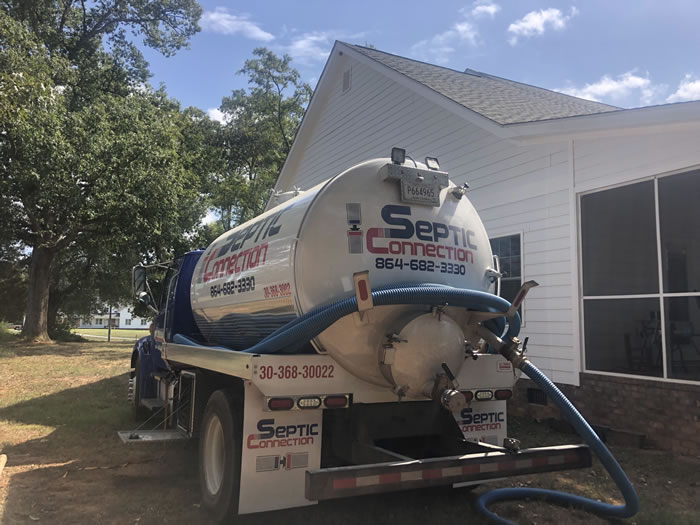Call This Friday to Get $25 OFF
Clean Solutions, Dirty Jobs – Done Right. Reliable. Responsive. Remarkable.
Call This Friday to Get $25 OFF
Clean Solutions, Dirty Jobs – Done Right. Reliable. Responsive. Remarkable.
Septic systems are crucial in managing household wastewater, relying on natural processes to break down solid waste. Bacteria decompose waste materials, but sometimes, these systems require a helping hand: septic tank additives. Additives can either boost the efficiency of your septic system or disrupt it, depending on their composition and purpose. Before using these products, please consult a professional septic company to ensure it is the right choice. At Septic Connection, we understand additives’ effects on septic systems, helping you make informed decisions about septic tank pumping and care.

Biological additives supplement and enhance the naturally occurring bacteria in your septic system. These additives contain live bacteria cultures and enzymes that speed up the breakdown of solid waste. When used correctly, they can help counteract the adverse effects of harmful substances that enter the system, such as cleaning products, disinfectants, and soap. This goes a long way to prevent frequent septic tank repair calls and nasty surprises.
We can recommend biological additives to introduce beneficial bacteria strains after a septic tank installation, ensuring break down of solids and improve overall system performance from the start. However, choosing a suitable biological additive is essential, hence the need to consult a professional septic company. Not all products are created equal, as some additives may contain inactive bacteria or ineffective enzyme formulations. Research and select a reputable product for optimal results.
Organic solvents are a category of additives that can positively and negatively affect your system. These additives often contain chemicals that dissolve solid waste, preventing clogs, backups, and frequent septic tank pumping sessions. While organic solvents provide a short-term solution to blockages, they can disrupt the natural bacterial balance within your septic tank.
The septic system is an onsite waste treatment facility, and it is incredibly reliable. However, the system is only as effective…
Imagine flushing your toilet and then suddenly realizing that your backyard has turned into a swampy mess. This unpleasant experience is…
Soil testing is a critical step in various construction and environmental projects. It provides essential information about the ground conditions, which…
Grease traps are remarkable tools that help keep your establishment clean and free from bad odors. Septic Connection has a…
If you have just moved into a new home or property that relies on a septic system for waste and wastewater…
The harsh chemicals in these products can kill off beneficial bacteria, making it harder for your system to break down waste effectively. In addition, some organic solvents may contain harmful compounds that can leach into the environment and contaminate groundwater. Even if your system functions as expected, routine inspections by a reputable septic tank repair service can help to mitigate damage.
Inorganic compounds are another type of septic tank additive that differs from biological additives and organic solvents in their composition. These additives often contain minerals or chemicals that can improve the performance of septic systems by reducing odors, breaking down solids, or preventing corrosion.
Inorganic compounds may include aluminum sulfate or calcium chloride, which adjusts the tank’s pH level and settles solids at the bottom. However, the effectiveness of these additives varies, and their effects on your system can be unpredictable. Before a DIY septic tank cleaning and maintenance, consult an expert to determine if inorganic compounds may interfere with your system’s natural bacterial processes.
Understanding additives is crucial for maintaining the health and functionality of your septic system. However, the key to a well-functioning waste management system lies in regular septic tank cleaning, responsible waste disposal practices, and informed decisions about additives. Before adding any substance to your septic tank, contact us at Septic Connection to ensure it aligns with your system’s needs. Please schedule a consultation today with our representatives to access quality services, such as septic tank installation and repair, at competitive rates.
A septic system is one of the most important—and most overlooked—components of a home. It manages wastewater quietly in the background, so many homeowners assume everything is fine until a…
Read moreWhen it comes to maintaining a septic system, experience is not just helpful—it is critical. Septic systems operate below the surface, out of sight but essential to the daily function…
Read more